TechnologyCounter provides genuine, unbiased real user reviews to help buyers make informed decisions. We may earn a referral fee when you purchase through our links, at no extra cost to you.
List of 15 Best Telecommunication Software
Showing 1 - 15 of 49 productsServetel is an innovative cloud communication platform that specializes in providing top-notch solutions for businesses of all sizes. With its user-friendly interface features, Servetel enables companies to streamline their communication processes an...Read Servetel Reviews
Avaya is a leading provider of innovative communications software designed to empower businesses of all sizes. With a strong commitment to customer satisfaction, Avaya offers a wide range of solutions that enhance collaboration, increase efficiency,...Read Avaya Reviews
MyOperator is a leading cloud-based call management system designed to simplify and streamline communication for businesses of all sizes. With its user-friendly interface features, MyOperator enables companies to handle large volumes of calls effecti...Read MyOperator Reviews
Mtalkz is a communication platform that will revolutionize the way businesses connect with their customers. With its user-friendly interface features, Mtalkz streamlines communication processes and enhances customer engagement. Say goodbye to traditi...Read Mtalkz Reviews
Knowlarity is a leading technology company that has revolutionized the way businesses communicate with their customers. With a mission to simplify and streamline communication, Knowlarity offers a range of solutions for businesses, including cloud-ba...Read Knowlarity Reviews
Convoso is a software company that aims to revolutionize the customer engagement process for businesses of all sizes. With a team of experts technology, Convoso offers a range of innovative solutions that help companies connect with their target audi...Read Convoso Reviews
Salesquared is a software designed to streamline and elevate your sales processes. With its intuitive features and user-friendly interface, Salesquared empowers businesses to drive sales, close deals, and boost revenue. Say goodbye to traditional met...Read Salesquared Reviews
Ajura is a all-in-one solution for modern communication needs. With its user-friendly interface features, Ajura makes staying connected easier than ever. Simply download the app and enjoy seamless calling, messaging, and more - all at unbeatable rate...Read Ajura Reviews
Say hello to Kaleyra, your all-in-one communication solution for businesses of all sizes. With Kaleyra, connect with your customers through various channels such as SMS, voice, and instant messaging. Increase productivity, enhance customer engagement...Read Kaleyra Reviews
D7SMS is a and innovative communication platform that helps businesses effectively reach their target audience through SMS messaging. With its user-friendly interface features, D7SMS simplifies the process of sending and receiving text messages, maki...Read D7SMS Reviews
Bay IVR, the ultimate interactive voice response solution for businesses of all sizes. With its intuitive design and seamless integration, Bay IVR allows you to efficiently manage customer interactions and enhance overall business performance. Say go...Read Bay IVR Reviews
Digimiles is a leading software company that offers innovative solutions to revolutionize digital communication. With their user-friendly platform features, Digimiles helps businesses of all sizes reach their customers through various channels like S...Read Digimiles Reviews
MOBtexting is a leading Communication Platform as a Service (CPaaS). MOBtexting gives A2P Messaging and Cloud Telephony Services to advance organizations, computerize client collaborations, improve client commitment, track the correspondence, and so...Read MOBtexting Reviews
RingCentral is a leading cloud-based communication and collaboration platform, trusted by over 350,000 organizations worldwide. It offers a suite of flexible and user-friendly communication tools, enabling businesses to connect, engage, and succeed i...Read RingCentral Reviews
Adversus is a solution for your businesss customer interaction needs. Designed to streamline communication, increase efficiency and maximize results, Adversus offers a modern platform for managing sales, support and marketing activities. With its use...Read Adversus Reviews
- What Is Telecommunication Software?
- Top Reasons Why Businesses Need Telecommunication Software?
- What Are the Top Key Features of Telecommunication Software?
- What Are the Top Benefits of Telecommunication Software?
- What Are the Steps to Choose the Right Telecommunication Software?
- What Are the Types of Telecommunication Software for Different Industries?
- What Are the Technology Trends for Best Telecommunication Software?
- What Are the Deployment Options for Telecommunication Software?
What Is Telecommunication Software?
Telecommunication software refers to software specifically developed to facilitate users in accessing voice, video, and data communication services through telecommunication equipment, networks, and systems.
The aforementioned systems encompass voice over internet protocol (VoIP) systems, mobile-phone networks, broadcast systems, satellite radio systems, and conventional telephone systems. The aforementioned software serves the purpose of facilitating the transmission and reception of data, textual content, visual representations, and auditory information across varying distances.
Furthermore, it is employed for the purpose of data management, including the management of both the data itself and the networks via which the data is transmitted. Telecom management software plays a crucial role in ensuring the security of communication between users.
The encryption mechanism employed ensures that the data transmitted and received by users is protected, granting access just to individuals possessing the appropriate credentials. Furthermore, the software offers audits and compliance control services, together with data loss prevention services, thereby augmenting the overall security measures.
Telecommunication software facilitates the administration of various communication services, encompassing voice and video calls, voicemail, call forwarding, call conferencing, and other related functionalities. Additionally, the best telecom software facilitates the administration of phone and video streaming services, enabling individuals to engage in synchronous meetings and conferences across various geographical locations.
Best telecom software is employed for the purpose of administering data management services, encompassing functions such as storage, access control, security, and archiving. The implementation of security measures guarantees the protection of data and restricts access solely to individuals with proper authorization.
Furthermore, telecom management software offers a range of tools for the purpose of data analysis and monitoring its utilization.
Top Reasons Why Businesses Need Telecommunication Software?
1. Enhanced customer service is achieved by the increased ability of organizations to promptly and effectively address enquiries, beyond the capabilities of manual processes.
2. The facilitation of improved collaboration among staff members who are located in different geographical locations, resulting in expedited decision-making procedures.
3. One notable advantage is the enhanced scalability of operations, particularly for enterprises experiencing growth in their client base.
4. The enhancement of customer assistance is characterized by increased call resolution rates and a heightened comprehension of customer requirements.
5. The optimization of operations was achieved by the implementation of automation techniques for everyday communications, including business development, customer interactions, and marketing activities.
6. One of the benefits of telecommunication software is the enhancement of employee productivity by eliminating the necessity of repeating jobs and information.
7. One benefit of the system is the potential for cost savings through the efficient re-routing of calls to the appropriate department or individual.
8. One advantage of utilizing lower-cost communication methods is the elimination of the requirement for distinct lines and equipment, which is typically associated with traditional phone systems.
9. The enhancement of operational effectiveness in both internal and external communications is achieved via the implementation of a centralized system for managing messages and discussions.
10. Real-time access to consumer data enables organizations to gain enhanced insights into client demands and preferences.
11. The capacity to efficiently and securely allocate user privileges, hence guaranteeing dependable connectivity to organizational platforms.
12. One advantage of automated processes is the potential for increased accuracy, as they can eliminate human errors and enhance the quality of data.
13. The streamlining of infrastructure administration is achieved by the integration of server and application updates, as well as the facilitation of telephony installations and upgrades.
14. The objective is to achieve the most efficient segmentation of customer statements and policies, resulting in enhanced comprehensibility and cost-efficiency during implementation.
15. The inclusion of comprehensive reporting tools allows firms to effectively assess performance, allocate resources, and monitor costs over an extended period of time.
What Are the Top Key Features of Telecommunication Software?
1. Call Management: This functionality facilitates the effective management of telephone communications, enabling users to promptly choose from accessible extensions, execute call transfers or conferences, and place numerous conversations on hold.
2. Unified Communications: This feature consolidates many communication modalities, including email, Voice over Internet Protocol (VoIP), video conferencing, and instant messaging, inside a unified platform.
3. Automation: This functionality streamlines routine operations related to managing a telephone system, enabling users to dedicate their attention to customer service and other significant responsibilities.
4. Scalability: This functionality enables customers to adjust the capacity of their telecommunication software in order to accommodate their expanding communication requirements.
5. Security: This functionality guarantees the confidentiality and security of phone calls, emails, and other modes of communication.
6. Integrations: This functionality enables customers to seamlessly include telephony software into their pre-existing applications and systems.
7. Analytics: This particular functionality offers significant insights into the performance of client interaction and communication, enabling users to enhance their methods for communication.
8. Cloud-based: The functionality is specifically engineered to operate on cloud-based platforms, hence enabling customers to conveniently access their communications software from any location.
What Are the Top Benefits of Telecommunication Software?
1. Increased collaboration: Telecommunication software facilitates seamless collaboration among geographically dispersed team members, enabling swift and effective project coordination without the constraint of physical proximity.
2. Reduced costs: Best telecom software has the potential to mitigate expenditures related to travel and other miscellaneous costs, hence enabling the facilitation of in-person meetings.
3. Increased productivity: The utilization of telecom management software enables the prompt and effective formulation of high-quality decisions, hence fostering enhanced production.
4. Improved customer service: The capacity to engage in prompt and effective communication with consumers has the potential to enhance the quality of customer service.
5. Enhanced scalability: Telecommunication software enables organizations to rapidly and effortlessly expand their operations.
6. Increased flexibility: The program offers employees the opportunity to engage in remote work, so granting them the ability to operate from any location.
7. Improved communication: The utilization of telecom management software expedites the process of communication and fosters the provision of feedback, hence enhancing the decision-making process.
8. Security: Telecommunication software facilitates secure communication by employing robust encryption mechanisms to safeguard data.
9. Increased data availability: The best telecom software facilitates secure communication by employing robust encryption mechanisms to safeguard data.
What Are the Steps to Choose the Right Telecommunication Software?
1. Establish Your Need: Prior to commencing the process of picking suitable telecoms software for one's organization, it is imperative to ascertain the precise requirements and goals of the intended system acquisition.
One should take into account the various applications and features that the program ought to encompass, such as call center functionalities and Voice over Internet Protocol (VoIP) capabilities.
2. Survey the Market: Subsequently, conduct thorough investigation and evaluate the diverse array of possibilities present in the market to ascertain the telecom software variants that align most effectively with your specific requirements.
Utilize web resources to acquire information pertaining to diverse products, their respective features, capabilities, and pricing details.
3. Investigate Software Performance: The significance of the performance of a telecommunications software package is equivalent to that of its features and capabilities. Examine the consumer ratings of the software as provided by previous customers, as well as the technical help feedback received from the developers.
4. Consider the Cost: After determining the most suitable form of telecom management software for your requirements, software used in telecom industry is important to take into account the long-term financial implications associated with the product. Take into account any required additional components, fees for licensing, and advantages of customer service.
5. Make Your Choice: It is imperative to thoroughly evaluate all relevant facts and employ proper criteria prior to reaching a conclusive judgment. It is imperative to take into account prospective objectives and requirements, and ensure the careful selection of a software system that is capable of accommodating them.
What Are the Types of Telecommunication Software for Different Industries?
Telecommunication software for different industries can generally be divided into four categories: toll collection, customer service automation, automated testing, and intelligent networks.
1. Toll Collection: Toll collecting software is particularly suitable for industries that depend on receiving payments from their consumers. The software used in telecom industry generally incorporates a user interface that facilitates clients in conveniently making electronic or card-based payments for their fees. In addition to its core functionalities, several software applications have diverse mechanisms for monitoring financial transactions, upholding documentation, and producing comprehensive analyses.
2. Customer Service Automation: The primary objective of customer service automation software is to enhance the efficiency of customer service operations.
The software used in telecom industry may encompass several functionalities, such as automated responses to electronic mail or chat messages, automated support tickets, automated phone directories, and other attributes specifically devised to expedite customers' information retrieval or issue resolution processes.
3. Automated Testing: The utilization of automated testing software is imperative in sectors involved in the production of hardware, such as smart phones or computer hardware, due to its ability to facilitate more precise and thorough testing procedures.
The test cases can encompass a variety of specialized scenarios designed specifically for certain components or devices.
4. Intelligent Networks: Intelligent networks play a crucial role in enabling enterprises to optimize efficiency and minimize expenses. This particular software frequently aids in the optimization of networks to achieve optimal efficiency, the management of traffic, and the proactive identification of issues.
The analysis of networks and computer performance can offer comprehensive understanding, enabling organizations to gain a competitive advantage in optimizing their operational efficiency.
What Are the Technology Trends for Best Telecommunication Software?
The prevailing trajectory in best telecom software is increasingly oriented towards cloud-based services. The implementation of this approach will facilitate enhanced scalability, optimize resource utilization, and result in heightened production.
Additionally, other measures are being implemented to bolster security, including the use of two-factor authentication, encryption protocols, and end-to-end encryption. Furthermore, the integration of artificial intelligence (AI) and machine learning techniques is being employed in software applications to enhance customisation capabilities and improve the accuracy of data analysis.
There is a growing recognition of the significance of mobile and wireless capabilities, which are enabling quicker data transmission rates and enhancing device versatility.
What Are the Deployment Options for Telecommunication Software?
The deployment choices for telecommunication software exhibit variability, contingent upon the particular application and the capabilities of the network infrastructure.
In general, there exist four primary deployment choices, namely cloud deployment, premise-based deployment, virtualization deployment, and hosted deployment.
1. Cloud deployment is often regarded as the prevailing choice for communications software. Cloud deployment enables enterprises to leverage a diverse array of services, applications, and data from a cloud provider, eliminating the need for hardware, maintenance, or dedicated IT people.
Organizations have the capability to conveniently utilize cloud-based telephony software from any location that has an internet connection.
2. Premise-Based Deployment refers to a deployment approach wherein the necessary software and computing resources are procured and maintained on-site by IT employees.
The implementation of this telecom software may necessitate supplementary configuration, along with the acquisition of hardware and the allocation of resources for maintenance, which might incur significant costs and demand substantial time investment.
3. The virtualized deployment approach involves the utilization of virtual resources, including storage and hardware, that can be accessed by businesses regardless of their geographical location. Additionally, this strategy allows organizations to leverage their existing hardware and network resources
The adoption of virtualized deployment is particularly prevalent among enterprises that require substantial computer resources beyond the capabilities offered by cloud-based or on-premise deployments.
4. Hosted deployment refers to a deployment method wherein enterprises retain ownership of their software while leveraging the services of an external provider or third-party to oversee software management, encompassing tasks such as data storage and maintenance.
Hosted deployment presents a viable option for organizations seeking to achieve cost reduction without compromising operational control.
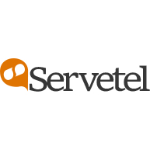


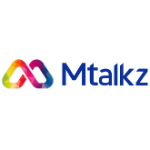

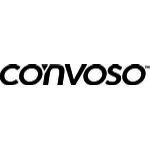



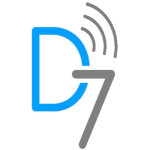
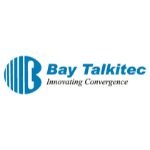

.png)


